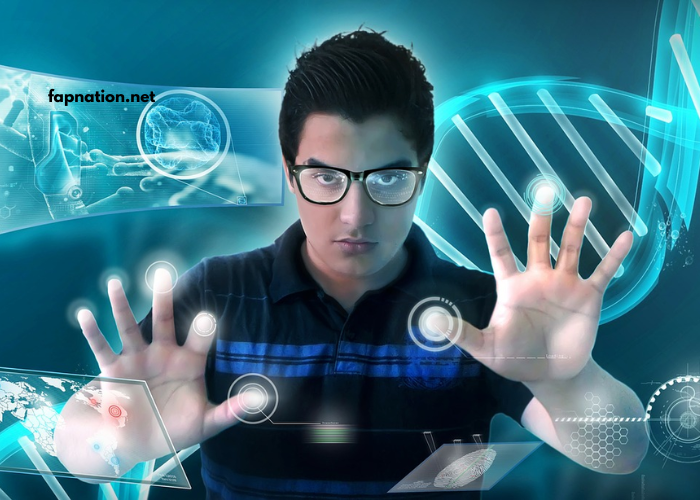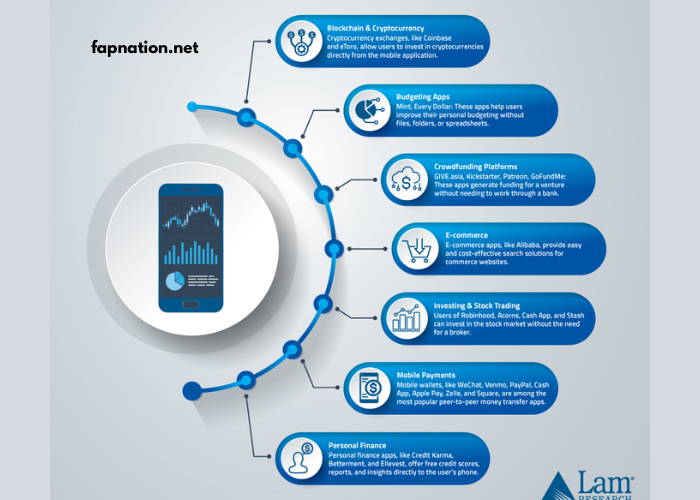Technology is advancing at an unprecedented pace, and the innovations we are witnessing today are reshaping industries, driving economic growth, and improving the quality of life globally. As we look towards the future, 2025 promises to be an exciting year for groundbreaking tech advancements. From artificial intelligence (AI) to quantum computing, the next wave of technological innovations is expected to change how we work, live, and interact with the world around us.
In this article, we will explore the top tech innovations to watch in 2025 and beyond. These innovations have the potential to revolutionize industries, disrupt established norms, and offer solutions to some of the world’s most pressing challenges.
1. Artificial Intelligence and Machine Learning Advancements
The Rise of Generative AI
Artificial Intelligence (AI) has already made significant strides in various fields, but its potential is far from fully realized. In 2025 and beyond, AI and machine learning (ML) will continue to evolve, creating more sophisticated algorithms that are capable of tackling increasingly complex tasks. Generative AI, in particular, is poised to revolutionize creative industries such as content creation, music, art, and even software development. Tools like OpenAI’s GPT series and DALL·E are just the beginning of this evolution.
These advanced AI models are expected to improve their ability to generate human-like content, assist in decision-making processes, and even create new solutions that were previously unimaginable. With the ability to analyze massive datasets in real-time, AI is set to offer unprecedented levels of personalization, automation, and predictive capabilities.
AI in Healthcare
AI’s role in healthcare is growing exponentially, and by 2025, AI-powered tools will be critical in improving patient outcomes and streamlining healthcare delivery. AI algorithms are already being used for early detection of diseases such as cancer, diabetes, and heart conditions by analyzing medical imaging and genetic data. In the coming years, we can expect even more sophisticated AI systems that can predict diseases before they manifest, recommend personalized treatment plans, and assist in drug discovery.
Moreover, AI-powered robots and virtual assistants are likely to become commonplace in healthcare settings, supporting medical professionals in tasks ranging from administrative duties to surgeries.
2. Quantum Computing
Quantum computing is another cutting-edge technology that has the potential to change the world as we know it. While still in its infancy, advancements in quantum computing are expected to accelerate significantly by 2025. Quantum computers are designed to solve problems that are practically impossible for classical computers to tackle, such as complex simulations in chemistry, materials science, and cryptography.
Quantum computing could revolutionize industries like pharmaceuticals, where it can speed up drug discovery processes, and logistics, where it can optimize supply chain management. Additionally, breakthroughs in quantum cryptography could lead to the development of ultra-secure communication systems, making data transmission virtually immune to hacking.
As quantum computers become more powerful and accessible, they are likely to play an integral role in solving some of the world’s most complex problems, from climate change to global health crises.
3. 5G and Beyond: The Future of Connectivity
The Rise of 5G Networks
One of the most anticipated technological advancements for 2025 is the global rollout of 5G networks. 5G technology promises to provide faster data speeds, lower latency, and more reliable connections, transforming how we use the internet and interact with smart devices. With 5G, we can expect to see improvements in everything from gaming and video streaming to augmented reality (AR) and virtual reality (VR) applications.
5G is also expected to power the growth of the Internet of Things (IoT), connecting billions of devices and enabling them to communicate with each other in real-time. This will lead to smarter homes, smarter cities, and more efficient industries.
6G and the Future of Connectivity
Looking beyond 2025, the next-generation 6G technology is already in the works. 6G will take the capabilities of 5G to the next level, providing even faster data speeds, ultra-low latency, and more reliable global coverage. With the integration of artificial intelligence, 6G could enable autonomous systems, fully immersive holograms, and advanced machine-to-machine communication.
While 6G may not be fully realized by 2025, research and development are already underway, and we can expect early prototypes and experimental networks to emerge within the next decade.
4. Autonomous Vehicles and Electric Mobility
The Growth of Autonomous Vehicles
Self-driving cars are one of the most exciting tech innovations that could change the way we travel. In 2025, autonomous vehicles (AVs) are expected to be more advanced and widely adopted, with several major car manufacturers and tech companies already making strides in this area. These vehicles use a combination of AI, machine learning, and sensor technologies to navigate roads, avoid obstacles, and make real-time decisions.
The widespread adoption of AVs has the potential to reduce traffic accidents, improve road safety, and increase transportation efficiency. Additionally, autonomous vehicles could lead to new forms of shared transportation, reducing the need for personal car ownership and helping to address urban congestion and pollution.
Electric Mobility and Sustainable Transportation
Alongside autonomous vehicles, electric mobility is also on the rise. As the world shifts towards more sustainable transportation options, electric vehicles (EVs) are becoming increasingly popular. By 2025, we can expect to see a significant increase in the number of electric cars on the road, with improved battery technologies providing longer ranges and faster charging times.
Electric buses, trucks, and even flying vehicles (eVTOLs) are expected to become a common sight in urban environments, further reducing carbon emissions and contributing to greener, more sustainable cities.
5. Blockchain and Decentralized Technologies
Blockchain Beyond Cryptocurrencies
While blockchain technology is most commonly associated with cryptocurrencies like Bitcoin, its potential extends far beyond digital currencies. By 2025, blockchain is expected to play a significant role in industries such as supply chain management, healthcare, finance, and even voting systems.
Blockchain offers a decentralized, transparent, and secure way to store and share data, which could lead to increased trust and efficiency in various sectors. For instance, in the supply chain industry, blockchain can track the origin and movement of goods, ensuring authenticity and preventing fraud. In healthcare, blockchain can be used to store patient records securely, allowing authorized healthcare providers to access them seamlessly.
Decentralized Finance (DeFi)
Decentralized finance, or DeFi, is another major development in the blockchain space. DeFi aims to replace traditional financial systems, such as banks and insurance companies, with decentralized applications (dApps) built on blockchain networks. By 2025, we may see a wider adoption of DeFi platforms that allow users to borrow, lend, trade, and invest in cryptocurrencies without the need for intermediaries.
DeFi has the potential to democratize finance, providing individuals in underserved regions with access to financial services that were previously out of reach.
6. Augmented Reality (AR) and Virtual Reality (VR)
The Evolution of AR and VR
Augmented Reality (AR) and Virtual Reality (VR) are technologies that have gained significant traction in recent years. By 2025, both AR and VR are expected to become more immersive, accessible, and integrated into various industries.
In gaming, VR will offer more lifelike experiences, while AR will enhance the way we interact with the physical world. For example, AR could be used to overlay information onto physical objects, enabling users to access real-time data and enhanced visualizations in industries such as retail, education, and healthcare.
In addition to gaming, VR and AR are also expected to play a key role in remote work, training simulations, and even social interactions, allowing users to connect in virtual spaces and experience new forms of entertainment and collaboration.
7. Biotechnology and Genetic Engineering
CRISPR and the Future of Gene Editing
Biotechnology is another area where innovation is rapidly advancing. One of the most promising technologies in this field is CRISPR, a revolutionary gene-editing tool that allows scientists to modify DNA with unprecedented precision. By 2025, CRISPR is expected to be used in clinical settings for treating genetic disorders, cancers, and other diseases.
Gene editing could also lead to advancements in agriculture, allowing for the development of crops that are more resistant to diseases, pests, and environmental stressors. Additionally, CRISPR could be used to enhance the human genome, potentially eliminating inherited diseases and improving overall health.
Personalized Medicine
Advancements in biotechnology are also paving the way for personalized medicine, where treatments are tailored to an individual’s genetic makeup. By 2025, personalized medicine could become more mainstream, offering more effective and targeted treatments for a wide range of conditions.
8. Smart Cities and IoT Integration
Building the Smart City of Tomorrow
Smart cities are rapidly becoming a reality, thanks to advancements in IoT, AI, and data analytics. By 2025, we can expect to see more cities adopt smart technologies to improve urban living. These technologies will be used to manage traffic, reduce energy consumption, monitor pollution levels, and improve public safety.
Smart sensors and IoT devices will enable cities to gather real-time data, which will be analyzed to optimize everything from waste management to energy distribution. For instance, smart traffic systems could reduce congestion and improve transportation efficiency, while energy-efficient buildings will contribute to sustainability goals.
Conclusion
The technological innovations we can expect to see in 2025 and beyond will have far-reaching impacts on nearly every aspect of life. From AI and quantum computing to autonomous vehicles and blockchain, these innovations are set to redefine how we live, work, and interact with the world around us. As these technologies continue to evolve, they hold the potential to solve some of humanity’s most pressing challenges, from climate change to global health issues.
While we are still in the early stages of many of these innovations, the next decade promises to be an exciting time for technology, with opportunities for businesses, governments, and individuals to harness the power of these groundbreaking advancements. Whether it’s revolutionizing industries or improving quality of life, the future of tech looks brighter than ever.



